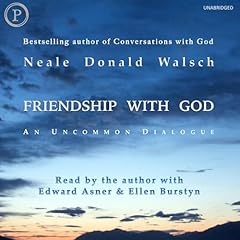
The Tale of a Niggun
No se pudo agregar al carrito
Solo puedes tener X títulos en el carrito para realizar el pago.
Add to Cart failed.
Por favor prueba de nuevo más tarde
Error al Agregar a Lista de Deseos.
Por favor prueba de nuevo más tarde
Error al eliminar de la lista de deseos.
Por favor prueba de nuevo más tarde
Error al añadir a tu biblioteca
Por favor intenta de nuevo
Error al seguir el podcast
Intenta nuevamente
Error al dejar de seguir el podcast
Intenta nuevamente
Prueba gratis de 30 días de Audible Standard
Selecciona 1 audiolibro al mes de nuestra colección completa de más de 1 millón de títulos.
Es tuyo mientras seas miembro.
Obtén acceso ilimitado a los podcasts con mayor demanda.
Plan Standard se renueva automáticamente por $8.99 al mes después de 30 días. Cancela en cualquier momento.
Compra ahora por $9.00
-
Narrado por:
-
John Rubinstein
-
Elisha Wiesel
It is the evening before the holiday of Purim, and the Nazis have given the ghetto’s leaders twenty-four hours to turn over ten Jews to be hanged to “avenge” the deaths of the ten sons of Haman, the villain of the Purim story, which celebrates the triumph of the Jews of Persia over potential genocide some 2,400 years ago. If the leaders refuse, the entire ghetto will be liquidated. Terrified, they go to the ghetto’s rabbi for advice; he tells them to return the next morning. Over the course of the night the rabbi calls up the spirits of legendary rabbis from centuries past for advice on what to do, but no one can give him a satisfactory answer. The eighteenth-century mystic and founder of Hasidism, the Baal Shem Tov, tries to intercede with God by singing a niggun—a wordless, joyful melody with the power to break the chains of evil.
The next evening, when no volunteers step forward, the ghetto’s residents are informed that in an hour they will all be killed. As the minutes tick by, the ghetto’s rabbi teaches his assembled community the song that the Baal Shem Tov had sung the night before. And then the voices of these men, women, and children soar to the heavens.
How can the heavens not hear?
Los oyentes también disfrutaron:




















Reseñas de la Crítica
“A short narrative poem with devastating impact, beautifully illustrated and accompanied by a helpful glossary contextualizing references to historic rabbis, cities, and concepts, including that of the niggun, a mystical song that one rabbi called ‘the pen of the soul.’ ”
—Jewish Book Council
“The tale and its lesson are classically Wiesel. Human and beautiful, it empowers the powerless. It’s traditional for Jews to place stones on graves; this story, based on several examples from history, places a pebble on an already insurmountable pile of rocks. The Tale of a Niggun is, of course, a Jewish book, but also not a Jewish book. Jewish stories, even in the present tense, are ancient stories, and the question and lesson central to the book are as present now as they’ve been since Eve left Eden . . . Frequent Wiesel illustrator Mark Podwal’s watercolor paintings are lovely.”
—New York Journal of Books
“Accompanied by Mark Podwal's quietly haunting full-page illustrations, Wiesel’s spare language cuts to the heart of human loss while the rhythms of the poetry capture the sad, endless march of inhumanity through history. At the same time, this poem sings out the power of belief and community and love.”
—Kirkus Reviews
—Jewish Book Council
“The tale and its lesson are classically Wiesel. Human and beautiful, it empowers the powerless. It’s traditional for Jews to place stones on graves; this story, based on several examples from history, places a pebble on an already insurmountable pile of rocks. The Tale of a Niggun is, of course, a Jewish book, but also not a Jewish book. Jewish stories, even in the present tense, are ancient stories, and the question and lesson central to the book are as present now as they’ve been since Eve left Eden . . . Frequent Wiesel illustrator Mark Podwal’s watercolor paintings are lovely.”
—New York Journal of Books
“Accompanied by Mark Podwal's quietly haunting full-page illustrations, Wiesel’s spare language cuts to the heart of human loss while the rhythms of the poetry capture the sad, endless march of inhumanity through history. At the same time, this poem sings out the power of belief and community and love.”
—Kirkus Reviews
Todavía no hay opiniones


